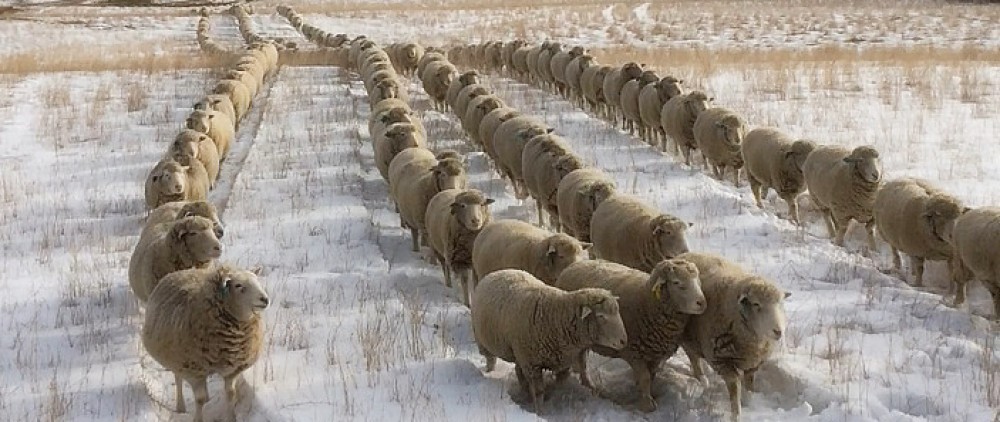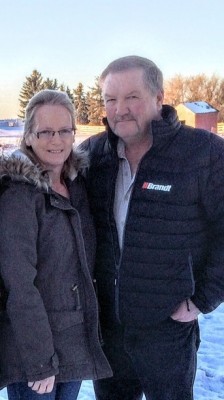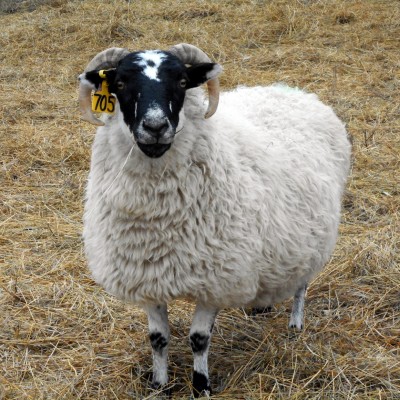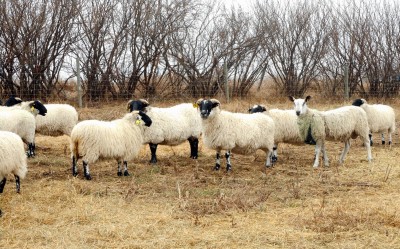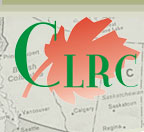Welcome! We invite you to look around our website. Feel free to contact us if you have any questions or just want to say hello! Thanks for stopping by!
McDermit Ranch is a family-run, 800 acre sheep ranch, owned and operated by Randy and Jelaine McDermit and their oldest son, Logan and his wife, Charlotte.
It is located in south-central Saskatchewan, Canada, in the beautiful, gently rolling area of Loon Creek. It is northeast of the little town of Southey, which is about 38 miles north of the city of Regina. The soil is a sandy loam and some of the ranch is dotted with small poplar bushes and sloughs.
We have been raising sheep since 1985. We raise purebred and commercial Dorsets and in September 2014, we bought a flock of 95 Blackface sheep in order to create Scotch Mules. We also grow grass/alfalfa hay which is all fed to the sheep.
Randy and Charlotte both work full time in Regina, so Jelaine and Logan run the day-to-day operations of the ranch. Logan also shears for other flocks in the spring until haying season begins in July.
A Bit of History
Shortly after we got married in 1985, while living at Rocky Mountain House, Alberta, we bought our first 25 registered Columbia ewes and we named our farm “West Country Columbias”. Our three sons arrived in the next few years; Logan in 1987, Nolan in 1988 and Carson in 1989. Our sheep flock numbers fluctuated over the years as we moved several times due to Randy’s job transfers in Alberta. In the 90′s, we added Rambouillet sheep, Quarter Horses and Boer goats to the operation so we changed our name to “West Country Stock Farm”.
In 1999, Randy’s job took him to Regina, Saskatchewan and he commuted back and forth 7 hours on weekends to Picture Butte, Alberta, until we moved to a farm near Southey, Saskatchewan in July of 2000. Unfortunately, our house burned down in January 2002, so instead of rebuilding, we sold that place and bought this ranch in June 2002.
When a cow in Alberta was found to have BSE (Mad Cow Disease) in May 2003, the United States border was closed to all Canadian ruminants and our only lamb market was in Canada. We saw the need to switch from the big-framed Columbia sheep to an animal with a smaller carcass. This is because the Canadian lamb market favors smaller cuts of lamb. We liked the attributes and the looks of Polled Dorsets, so we bought our first 50 registered Dorset ewes from Gordon Fulton (Edymore Dorsets) from Bowden, Alberta in May of 2007. Two herdsires came with the flock – Green Glen 12N and Moonshine 82R.
In the beginning of 2012, we decided to go into partnership with our oldest son, Logan. Since we don’t really live in the “west” anymore, we changed our name to “McDermit Ranch”.
Dorsets
We chose Dorsets for their out of season breeding, ease of lambing, excellent mothering & milking ability, prolificacy, docility, longevity and easy keeping. They also do an excellent job of lambing on pasture. They are a breed that will adjust to either a grazing or confinement program. The lambs are vigorous, fast growing and are good feed converters.
Blackface and Scotch Mules
We added a flock of 95 Blackface ewes and 5 rams to our program in September 2014. The Blackface sheep are a very tough, easy care hill breed, originating in Scotland. They raise their lambs with little intervention from the shepherd.
We are producing Scotch Mules by breeding the Blackface ewes to a Bluefaced Leicester ram. The Bluefaced Leicester contributes milkiness, prolificacy, early maturity and capacity, as well as hybrid vigor.
We will then breed the Scotch Mule ewes to a terminal sire to complete the “Stratifed 3-tier Breeding System”. The 3-tier breeding scheme utilizes traditional British Hill and Upland ewes from breeds such as the Blackface, North Country Cheviots, Border Cheviots, Clun Forest, and Shetland sheep. These hardy and adaptable ewes are bred to a Bluefaced Leicester ram to produce the popular and prolific commercial ewe called the ‘Mule’.
The final tier of the scheme is to utilize the heavy carcass genetics of terminal rams, such as the British type Texel and Suffolk, to economically and efficiently produce wholesome, healthy, grass fed lamb.
Our Goals
Our goals are to produce for ourselves and our customers, top quality breeding stock and market lambs. Our purebreds are kept for replacements only if they conform to the breed standards. The Standard of Excellence for Polled Dorset Sheep can be viewed on our “Dorset Sheep” page. Our Dorsets are the old style; low set, thickly muscled, correct and carrying lots of length. The Breed Description for Scottish Blackface can be viewed here. Good conformation and productivity is very important to us.
Our Program
Our ranch is a grass and forage based, low input operation where we don’t feed grain to the ewes. We believe sheep should be productive without being grain fed. We select for low maintenance ewes that don’t need grain to produce milk, raise their lambs and stay in good shape.
We lamb out about fifty purebred ewes in January. Their lambs are creep fed until the grass comes in the spring. The majority of the ewes lamb in May and their lambs go to market in the fall. We usually lamb a group of ewes in the fall as well. We sell the top ram lambs for breeding rams and the rest go to market. We also farmgate butcher lambs. A lot of the ewe lambs are kept for replacements as we are in the process of increasing the flock. However, we have started to sell some ewe lambs each year.
We are currently using 3 different sires on the purebred Dorset flock and we put 15 to 20 purebred Dorset rams out with the commercial flock. Shearing takes place in mid-April by a team of four professional shearers, including Logan.
The flock is fed salt and mineral free choice year round. We deworm and vaccinate in the spring before they go to pasture, and then deworm again in the fall. We use a rotational pasture grazing system which helps to keep parasites at a minimum. We never trim any feet because we don’t feed grain to our ewes and our soil is a bit sandy so the their hooves wear off by walking.
We use a Border Collie for herding the sheep. The flock is guarded by three Great Pyrenees, two Anatolian Shepherd, and one Tornjak/Great Pyrenees livestock guardian dogs.
Visit our facebook page.
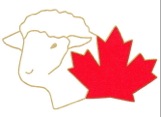 Member of the Canadian Sheep Breeders’ Association
Member of the Canadian Sheep Breeders’ Association
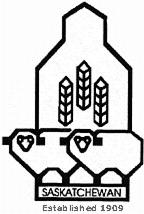 Member of the Saskatchewan Sheep Breeders’ Association
Member of the Saskatchewan Sheep Breeders’ Association
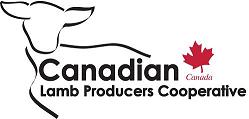 Member of the Canadian Lamb Producers Cooperative
Member of the Canadian Lamb Producers Cooperative
